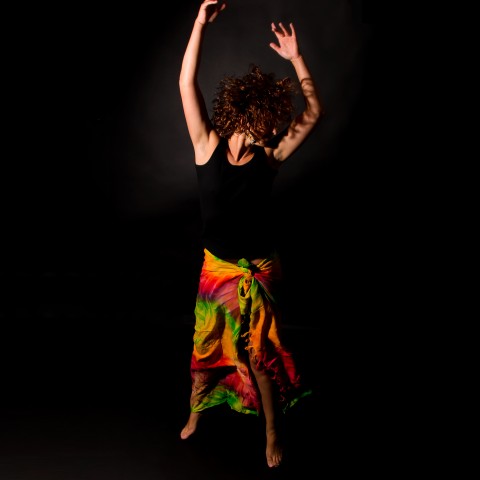
A sentence without a verb is like a bird without a nest.
It wants to fly around and express itself, but without a foundation to rely upon, it’s limited.
How’s your knowledge of Romanian verbs? We understand—the grammar is no joke. You don’t really want to learn verbs when you could be enjoying Romanian TV shows and music.
But if you never end up paying attention to Romanian verbs, you’ll find yourself lost for words all the time.
Advanced learners need to learn the grammatical nuances, as well as just the plain old nuances of the lexicon itself. Beginner learners need to nail down a foundation of basic words for everyday use.Enough chit-chat. In this article, you’re going to learn 100 Romanian verbs, every one of them shown conjugated in an example for better learning efficiency.
 Table of Contents
Table of Contents
- Verbs About Going Places
- Verbs About Interacting with Others
- Verbs About Daily Activities
- Abstract Verbs for Abstract Concepts
- Moving Things Around
- Work and Study
- Thoughts and Feelings
- Move Your Body
- Conclusion
1. Verbs About Going Places

You’re probably learning Romanian for travel, is that right? That’s why we’ve put the verbs of motion and traveling—the most common Romanian verbs—right here at the top, so that you learn them when you’re fresh.
1. arrive – a ajunge
Cred că el va ajunge în curând.
I believe he’ll arrive soon.
2. come – a veni
Prietenul meu a venit azi pe la mine.
My friend came over today.
3. enter – a intra
Era cât pe ce să intre în cameră.
He was just about to enter the room.
4. go – a merge
Se pare că trebuie să mergem.
It looks like we need to go.
5. leave – a pleca
Trebuie să plec neîntârziat.
I have to leave immediately.
6. return – a se întoarce
Amy nu s-a întors acasă în acea noapte.
Amy didn’t return home that night.
7. ride a bike – a merge cu bicicleta
Nu știam că poți să mergi pe bicicletă.
I didn’t know you could ride a bike.
8. sightsee – a vizita
Nu am venit aici să vizitez.
I didn’t come here for sightseeing.
9. stay – a rămână
Nimeni nu știe dacă să rămână sau să plece.
Nobody knows whether to stay or go.
10. travel – a călători
Am călătorit 10,000 de mile pentru a fi aici.
I traveled 10,000 miles to be here.
11. walk – a plimba
El s-a dus în parc ca să se plimbe.
He went for a walk in the park.
2. Verbs About Interacting with Others

Language at its core is all about interaction. In this list of Romanian verbs, you’ll learn about speaking with and listening to Romanians, other learners, or people who have no idea how to speak Romanian at all!
12. ask – a întreba
Niciodată să nu întrebi o femeie despre vârsta ei.
Never ask a woman about her age.
13. believe – a crede
Am crezut în tine.
I believed in you.
14. call – a suna
Pe cine ai sunat?
Who did you call?
15. explain – a explica
Lasă-mă să explic ce s-a întamplat.
Let me explain what happened.
16. listen – a asculta
Ar trebui să o asculți.
You should listen to her.
17. apologize – a cere scuze
De ce ți-ai cere scuze pentru așa ceva?
Why would you apologize for that?
18. repeat – a repeta
Te rog repetă ce ai spus.
Please repeat what you just said.
19. say – a spune
Este timpul să spui la revedere.
It is time for you to say goodbye.
20. sing – a cânta
Cântam cântece folk.
We sang folk songs.
21. speak – a discuta
Am discutat cu mama ta.
I spoke with your mother.
22. talk – a vorbi
E grozav să vorbesc cu tine.
It’s great talking with you.
23. understand – a înțelege
Noi punem întrebări pentru a înțelege lucrurile mai bine.
We ask questions to understand things better.
3. Verbs About Daily Activities

Daily activities are some of the easiest things to describe in Romanian, if only because you’ll be reminded of those words as you do them every day. Here’s a Romanian verbs list of things you probably do often.
24. bathe – a face baie
Ea îi face baie bebelușului în fiecare seară.
She is bathing the baby every evening.
25. buy – a cumpăra
Am cumpărat un bilet greșit.
I bought the wrong ticket.
26. clean – a curăța
Sper că el mă va ajuta să curăț bucătăria.
I hope he will help me clean the kitchen.
27. cook – a găti
Bunica lui adoră să gătească.
His grandmother loves to cook.
28. dance – a dansa
Nu pot să dansez cu el.
I can’t dance with him.
29. draw – a desena
O să desenez o față tristă.
I’ll draw a sad face.
30. eat – a mânca
Nu mănânc carne sau fructe de mare.
I don’t eat meat or seafood.
31. drink – a bea
Dimineața îmi place să beau cafea.
I like to drink coffee in the morning.
32. exercise – a exersa
Exersez timp de 10 minute în fiecare zi.
I exercise for 10 minutes every day.
33. get up – a se scula
Scoală-te, e timpul să mergem!
Get up, it’s time to go!
34. look for – a căuta
Îmi voi căuta o altă slujbă.
I’m going to look for another job.
35. read – a citi
Am citit multe despre tine.
I’ve read a lot about you.
36. rent – a închiria
Noi am închiriat o casă în Palm Springs.
We rented a house in Palm Springs.
37. rest – a se odihni
Acum, tu ar trebui să te odihnești.
You should rest now.
38. see – a vedea
Poți vedea diferența?
Can you see the difference?
39. sleep – a dormi
Tu ar trebui să mergi acasă și să dormi.
You should go home and sleep.
40. text – a trimite un mesaj
Tatăl tău mi-a trimis un mesaj.
Your father texted me.
41. wake up – a se trezi
El se va trezi în 5 minute.
He’ll wake up in 5 minutes.
42. write – a scrie
El a scris raportul.
He wrote the report.
4. Abstract Verbs for Abstract Concepts

Some verbs just don’t fit into boxes. This category is for verbs that are more abstract in meaning, that is, verbs that are hard to describe with other words. Imagine trying to describe “become” in your native language! That’s why vocabulary is so important. Take a look at some of the most important Romanian verbs to describe difficult concepts.
43. become – a deveni
Puteam să devin președinte dacă doream.
I could become President if I wanted.
44. begin – a începe
Atacul a început la ora 02:35.
The attack began at 02:35.
45. to be able to – a putea
Mă bucur că am putut fi de ajutor.
I’m glad I was able to help.
46. do – a face
Vreau să îmi fac tema.
I want to do my homework.
47. exist – a exista
Persoana aceea nu mai exista.
That person doesn’t exist anymore.
48. finish – a termina
N-am terminat programul de instrucție.
I didn’t finish the training program.
49. pay – a plăti
Aveam de gând să plătesc pentru cină.
I had planned to pay for the dinner.
50. look for – a căuta
Îmi voi căuta o altă slujbă.
I’m going to look for another job.
51. resemble – a semăna cu
Fetița seamănă cu mama ei.
The little girl resembles her mother.
52. thank – a mulțumi
I-am mulțumit cu o cafea.
I thanked him with a coffee.
53. think – a considera
Cum consideri tu că e mai bine.
Whatever you think is best.
54. use – a folosi
Ei se folosesc de tine.
They’re using you.
55. want – a vrea
El vrea o mașină nouă.
He wants a new car.
5. Moving Things Around

Interact with objects in the environment—that sounds like a video game description, but if you want to speak correctly and accurately about everyday things in Romanian (not just about people), then you’ll need these Romanian language verbs as well.
56. break – a sparge
Nu se va sparge.
It’s not going to break.
57. brush – a peria
Nu am timp să-mi perii părul.
I don’t have time to brush my hair.
58. cut – a tăia
M-am tăiat la deget.
I cut my finger.
59. freeze – a îngheța
Mi-au înghețat mâinile.
60. help – a ajuta
Profesorul meu m-a ajutat să îmi termin eseul.
My teacher helped me finish my essay.
61. hold – a ține
Te rog ține-mi ușa.
Please hold the door for me.
62. open – a deschide
Vreau să deschid fereastra aceea.
I want to open that window.
63. pick up – a lua
Poți să iei copiii de la școală?
Can you pick up the kids from school?
64. pull – a trage
Trage maneta în jos.
Pull the lever down.
65. push – a împinge
Te rog, nu mă împinge.
Please don’t push me.
66. rain – a ploua
Sigur va ploua mai târziu.
It’s definitely going to rain later.
67. take – a lua
Te rog să iei acest medicament.
Please take this medicine.
68. turn off – a opri
Nu opri aparatele încă.
Don’t turn off the machines yet.
69. turn on – a porni
Acest televizor pornește foarte greu.
This TV takes forever to turn on.
6. Work and Study

Are you headed to Romania for a job or for a degree? These are some of the most-used verbs in Romanian when discussing those concepts!
70. close – a închide
La ce oră închizi magazinul?
What time do you close the shop?
71. correct – a corecta
Te rog să mă corectezi.
Please correct me.
72. erase – a șterge
Pentru a șterge mesajul, apăsați tasta patru.
To erase the message, press four.
73. learn – a învăța
Unde ai învățat germana?
Where did you learn German?
74. memorize – a memora
Îmi ia ceva timp ca să memorez un nume.
It takes me a while to memorize a name.
75. prepare – a pregăti
Mai bine te-ai pregăti pentru mâine.
You’d better prepare for tomorrow.
76. sell – a vinde
Ea vinde legume și fructe.
She sells vegetables and fruits.
77. send – a trimite
Profesorul îți va trimite o evaluare.
The teacher will send you an evaluation.
78. serve – a servi
Am servit țara mea cu mândrie.
I served my country proudly.
79. shop – a cumpăra
Toți vecinii cumpără de la acest magazin.
All the neighbors shop at this store.
80. study – a studia
Ce o să studiezi?
What are you going to study?
81. teach – a preda
Acolo voi preda franceza.
I’m going to teach French there.
82. wipe – a șterge
Șterge tot machiajul ăla!
Wipe off all that makeup!
83. work – să lucreze
Primul nostru programator a plecat să lucreze pentru Google.
Our first programmer went to work at Google.
7. Thoughts and Feelings

Romanians are open about their thoughts and feelings, more so than residents of other countries. Here, it’s all right for you to cry if you’re feeling overwhelmed with things.
In this section are some very useful verbs about expressing your emotions through actions, as well as verbs about thinking.
84. cry – a plânge
Te rog nu plânge.
Please don’t cry.
85. dream – a visa
Sunt sigur că nu am visat.
I’m sure I wasn’t dreaming.
86. feel – a simți
El se simte bolnav și obosit.
He feels sick and tired.
87. forget – a uita
Mi-am uitat cheia.
I forgot my key.
88. hear – a auzi
Ai auzit asta?
Did you hear that?
89. laugh – a râde
Ea a râs în fața mea.
She laughed in my face.
90. like – a place
Nu-mi place deloc.
I don’t like it at all.
91. love – a iubi
Mă mai iubești?
Do you still love me?
92. miss – a-ți lipsi
În pofida tuturor lucrurilor, îmi lipsește sora mea.
Despite everything, I miss my sister.
93. need – a avea nevoie
Am venit aici pentru că am nevoie de o prietenă.
I came here because I needed a friend.
94. remember – a își aminti
Tot nu-mi amintesc unde am pus banii.
I still don’t remember where I put the money.
95. respect – a respecta
Ei îmi respectă părerea.
They respect my opinion.
8. Move Your Body

Last, a couple of verbs that relate to physically moving your body, even if you aren’t actually going anywhere with those movements. These might not be your daily activities—instead, they’re more like tiny verbs that you usually do but rarely say.
96. live – a trăi
Cât de mult trăiesc broaștele țestoase?
How long do turtles live?
97. stand – a sta
Te rog nu-mi sta în drum!
Please, don’t stand in my way!
98. sweat – a transpira
De obicei nu transpir atât de mult!
I don’t usually sweat so much!
99. hug – a îmbrățișa
S-au îmbrățișat și s-au sărutat.
They hugged and kissed.
100. wait – a aștepta
Te rog să aștepți în zona de primire.
Please wait in the reception area.
101. watch – a privi
Privește cu atenție și apoi repetă.
Watch carefully and then repeat.
9. Conclusion
Congratulations! 100+ Romanian verbs under your belt. You’ve truly hit a great milestone here, and you should be proud.
This is very much an effective way to learn Romanian, by the way.
Romanian grammar is nothing to be trifled with, and by seeing a hundred examples of verbs in different conjugations, you’ve got a great practical background to go with your theoretical knowledge gained from courses or grammar books. If you do want more information on Romanian conjugation, though, keep an eye out for our upcoming article!
Are there any Romanian verbs we didn’t cover that you want to know? Let us know in the comments, and we’ll do our best to help you out!










